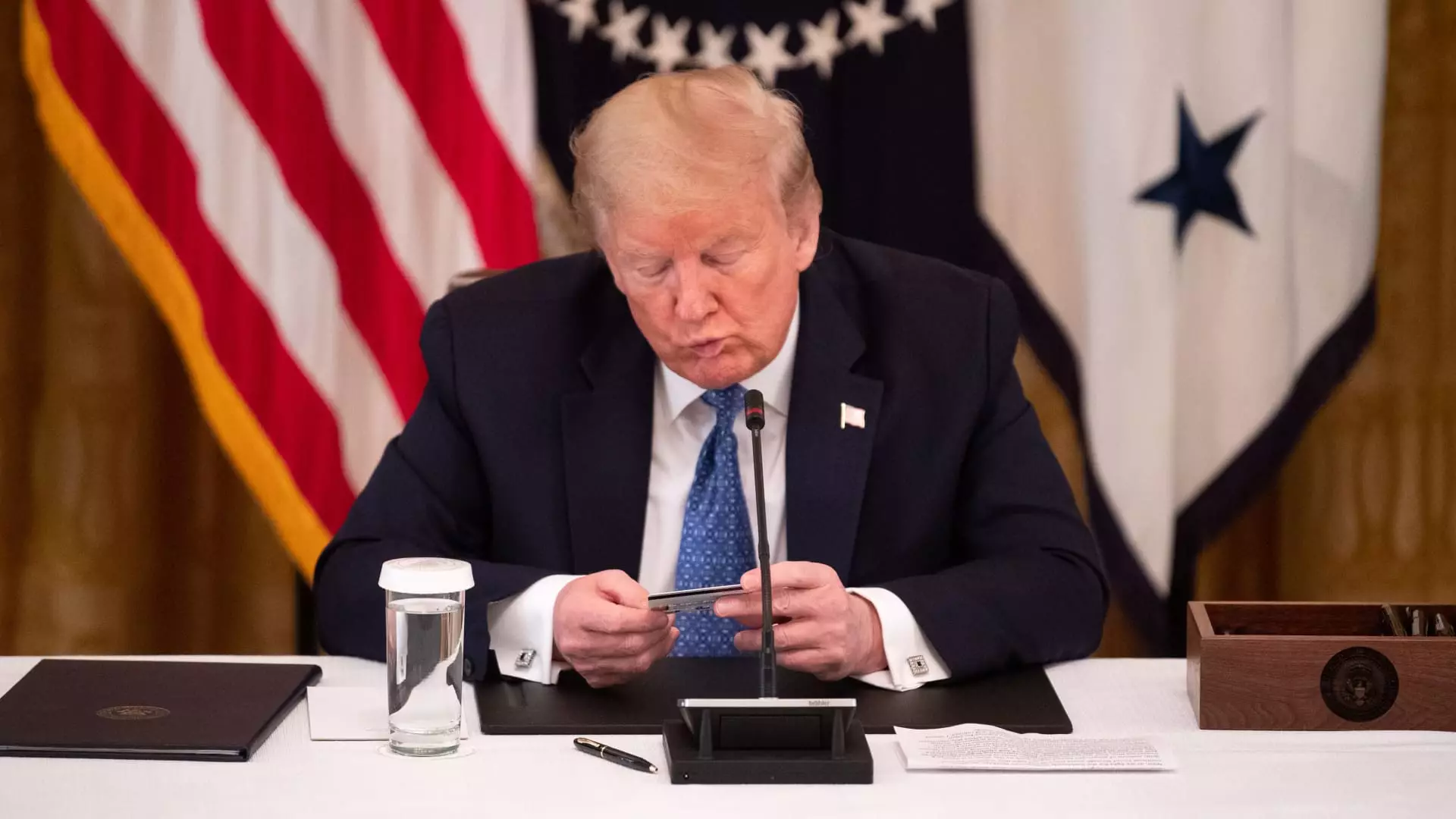The cryptocurrency landscape has recently become saturated with diverse projects, each promising innovation and investment opportunities. One of the latest ventures to enter this space is World Liberty Financial (WLF), co-founded by none other than Donald Trump and his associates. As with many cryptocurrency launches, the initial reception has been fraught with difficulties, casting a shadow over the aspirations linked to the project.
The launch of WLF’s token sale on a Tuesday faced significant setbacks from the outset. Despite a reported interest from “well over 100,000” prospective investors on its whitelist, the rollout was severely hampered by technical issues that left the platform in a state of disarray for prolonged periods. The frequent interruptions meant that only a mere 4,300 unique wallet addresses had been able to secure tokens by the day’s end. This represented a disheartening 4% of the total registered investors as noted in data gathered through Etherscan.
Indeed, the project’s official website was riddled with disruptions, often displaying a misleading “We are under maintenance” message that frustrated potential buyers. The company’s failure to maintain a stable online presence during such a critical period posed significant risks, not only to initial sales figures but also to overall credibility. With the sale of approximately 532 million tokens at a price of 15 cents each—merely 3% of the available 20 billion tokens—it is clear that the launch did not meet the expected enthusiasm.
For Trump, the founder and political figure behind WLF, the problematic launch occurs in a crucial time frame—only three weeks before the upcoming election. As the Republican presidential nominee, any negative press surrounding his business projects could potentially impact his political ambitions. The nickname “The DeFiant Ones” aimed at positioning WLF within the broader decentralized finance (DeFi) ecosystem might quickly transition into ironic labeling if the technical issues remain unresolved.
The timing could not have been worse. While Trump has portrayed his foray into the cryptocurrency sector as a groundbreaking step—largely enhancing his appeal among tech-savvy voters—the glitches in the initial launch may undercut his narrative of competence in innovation and economic management.
WLF’s ambition to raise $300 million at a fanciful $1.5 billion valuation also places it in a precarious position in terms of regulatory compliance. The project aims to operate under Regulation D, a provision that permits capital raises without direct registration with the SEC, but this strategy requires careful adherence to rules governing accredited investors. Such regulations stipulate a limit on the investor pool, highlighting the inherent risks of potential exclusivity and limited access for average investors.
Moreover, the limited transparency about the project’s offerings raises eyebrows. A lack of a comprehensive white paper or solid business plan has left many potential investors in the lurch, unsure of what to expect concerning their investment’s future. The scant details regarding voting rights and platform development provide a further layer of uncertainty, which could deter typical investors who prefer established, well-documented cryptocurrency ventures.
Simultaneously, Trump’s broader business portfolio faced challenges on the same day, particularly involving shares of the Trump Media & Technology Group, the parent entity of the social media platform Truth Social. The nearly 10% drop in shares, alongside trading halts, adds a troubling dimension, suggesting that investor confidence is wavering not just in cryptocurrencies but also in Trump-owned enterprises.
The turbulent launch of WLF represents a confluence of technological challenges, regulatory hurdles, and potential political implications for its co-founder. As the landscape continuously evolves, this high-profile project will require considerably more stability and transparency to regain trust and overcome initial setbacks. Without decisive actions to address these issues, the long-term prospects for both the cryptocurrency initiative and Trump’s broader business reputation remain uncertain at best.


Leave a Reply